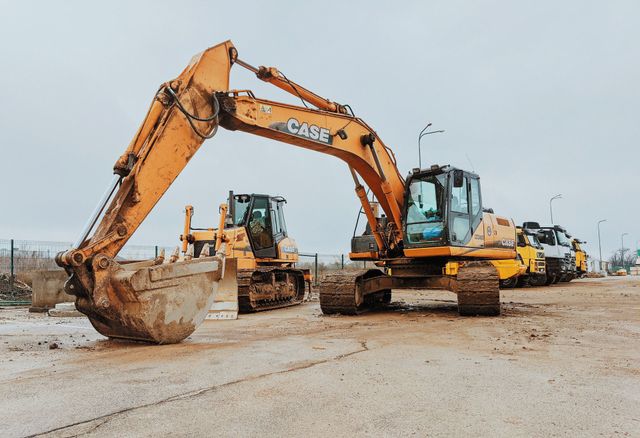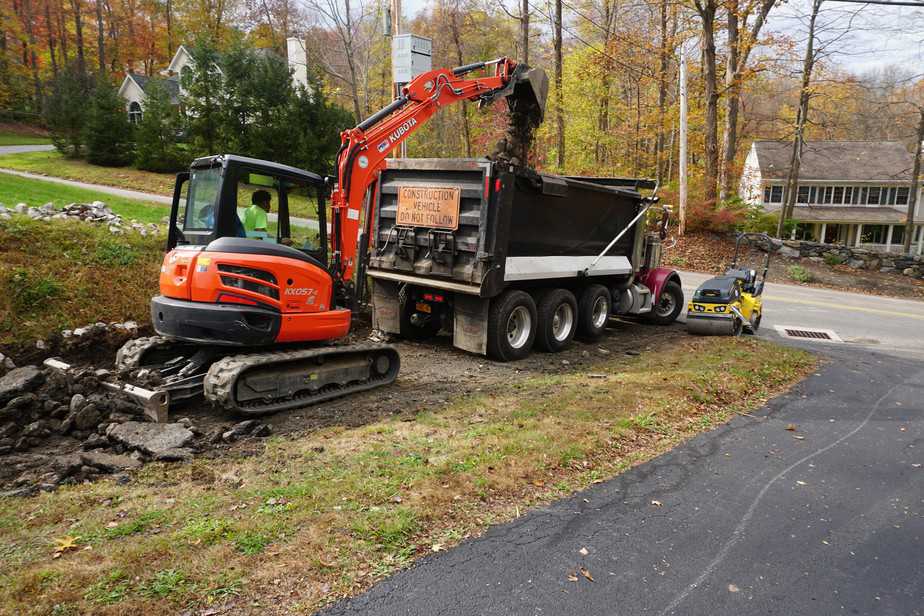Lancaster Excavation - Professional Excavation Providers in Lancaster, OH
Comprehensive Excavation Techniques: Understanding the Fundamentals for Success
The careful planning, exact implementation, and meticulous interest to information needed in excavation jobs demand a comprehensive approach that encompasses different essential aspects. The real proficiency lies not just in understanding these basics yet in seamlessly incorporating them to browse the complexities of excavation projects with finesse.
Understanding Excavation Task Planning

The initial phase of any type of excavation job is the preparation stage, where essential decisions are made that can significantly impact the result of the task. Recognizing the project spending plan, scope, and timeline constraints is crucial for creating an extensive excavation strategy that makes certain the task's success.
One secret element of excavation job preparation is the growth of a detailed timeline that lays out the series of activities, milestones, and target dates. This timeline offers as a roadmap for the job team, allowing them to track progression and make essential changes to make sure the project remains on routine. In addition, a distinct budget that makes up all expenditures, consisting of tools leasing, labor expenses, and products, is important for staying clear of price overruns and hold-ups. By carefully considering all these aspects during the drawing board, excavation jobs can be performed effectively and properly, leading to effective results.
Dirt Evaluation and Site Evaluation
Carrying out detailed soil evaluation and website analysis is a vital step in the prep work phase of any type of excavation task. Dirt analysis includes identifying the composition, framework, and residential or commercial properties of the dirt at the excavation website. This information is critical for comprehending the soil's bearing ability, moisture content, and potential for disintegration, which are vital aspects in determining the excavation techniques and equipment required for the task.
Website analysis surpasses soil analysis and encompasses a wider analysis of the total website problems. This examination consists of identifying any type of potential dangers, such as below ground utilities, ecological problems, or unstable surface, that can impact the excavation process. By completely examining the website, project managers can establish reliable excavation approaches that focus on safety, performance, and environmental protection.
Making use of sophisticated modern technologies like ground-penetrating radar, dirt sampling, and drone surveys can improve the precision and performance of dirt analysis and website analysis. Spending time and resources in these initial actions can ultimately save time and protect against costly hold-ups or issues throughout the excavation process.
Tools Choice and Application
Efficient excavation jobs count greatly on critical tools selection and use to make sure optimum performance and performance. Selecting the right equipment for the task is essential in making the most of efficiency and decreasing downtime. Factors such as the kind of dirt, depth of excavation, and task extent play a significant function in identifying one of the most appropriate tools for the task available.

Along with selecting the proper equipment, proper use is essential to project success. Operators needs to be educated to handle the equipment safely and successfully - dump truck companies in ohio. Normal maintenance checks and prompt repair services help avoid break downs and ensure regular performance throughout the project
Safety And Security Actions and Laws Compliance
In the world of excavation tasks, prioritizing precaution and compliance with regulations is extremely important to guaranteeing a safe and lawfully sound functional setting. Precaution incorporate a variety of techniques, consisting of performing extensive website evaluations, implementing appropriate signage and barriers, and giving sufficient safety training for all employees involved in the excavation process. Adherence to guidelines, such as OSHA requirements in the United States, makes certain that the excavation task fulfills the required standards to secure employees, spectators, and the surrounding atmosphere.

Tracking Progression and Adjusting Strategies
Just how can predict managers successfully track the development of excavation projects and adapt their techniques as necessary to enhance outcomes? Tracking development is vital for ensuring that excavation jobs stay on track and meet deadlines.

Conclusion
In final websites thought, understanding the fundamentals of comprehensive excavation methods is important for the success of any project. By understanding task preparation, examining dirt and website conditions, selecting ideal tools, adhering to safety laws, and keeping an eye on progress, task managers can make certain a reliable and smooth excavation procedure. Applying these approaches will bring about effective results and minimize prospective threats or problems throughout the excavation project.
The preliminary phase of any excavation task is the preparation phase, where important choices are made that can significantly impact the result of the task. Recognizing the job timeline, scope, and budget constraints is important for creating a comprehensive excavation strategy that makes sure the job's success.
How can project supervisors efficiently track the advancement of excavation projects and adapt their strategies accordingly to maximize outcomes? By carefully keeping an eye on development and being prepared to adjust approaches, job supervisors can improve the overall success of excavation jobs.
By recognizing job preparation, evaluating soil and site conditions, choosing appropriate tools, abiding with safety and security policies, and checking development, task supervisors can make certain a efficient and smooth excavation procedure.